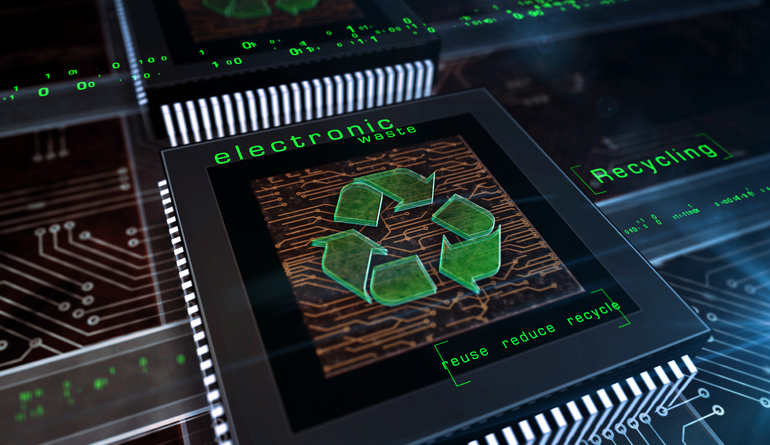Have Waste/Pickup?


Have Waste/Pickup?

You may know that electronic waste is one of the fastest-growing kinds of waste streams in the world. Electronic waste is waste generated from electronic goods, primarily made up of metals and plastics and containing toxic substances such as lead, mercury, cadmium, arsenic, and flame-retardants. India with its magnitude and is obviously at the forefront of this rapid growth in e-waste which, if recycled in a non-scientific manner, can lead not only to a terrible waste of diminishing natural resources but also cause the irreparable damage to the environment and to the health of the people working within this industry. On the other hand, if tackled safely and scientifically, this ‘trash’ can be re-used, recycled, and will greatly reduce our carbon footprint, our unsustainable dependence on virgin metals mining, and allow us to leave a healthier world for the generations to come.
In addition to the damage this e-waste stream causes to the environment, India also has the twin problem in which its domestic e-waste industry employs an informal sector (ragpickers-mostly living in slums and employing mostly children) that are unskilled, impoverished and, due to their un-scientific methods of recycling e-waste (burning waste over small fires, in open air, and with no shoes, gloves, or masks), unaware of the grave damage they are causing to their own health to earn their daily subsistence.
According to a recent report by UN’s StEP Initiative, which was setup to tackle the world’s e-waste crisis, nearly 50m tonnes of e-waste was generated worldwide in 2012-or about 7kg for every person on the planet. The report says that the global volume of electronic waste is expected to grow by 33% in the next four years, and also indicates that most of this waste will be illegally dumped in developing countries such as India. India itself produced 330 MT of e-waste in 2008, and over 800 MT in 2012, with total estimated market size of $500 MM.
Currently most (approx 95%) of the electronic waste in India is collected, dismantled, and ‘recycled’ by the informal/unorganized sector (consisting of unskilled and impoverished people living in the slums), which dismantles waste by breaking and burning it in open air-releasing carcinogens into the atmosphere, and littering the ground with shards containing lead and cadmium-damaging both the environment and the health of the people (mostly children) working in this sector.
To stem the flow of e-waste to the informal sector, Govt of India, on May 1 2012, enforced law (E-Waste Management and Handling Rules)which made it illegal for any member of the e-waste producing ecosystem to dispose of their e-waste through non-government authorized collectors, dismantlers, and recyclers of e-waste, with serious repercussions for breach.
But, is having a law in place enough? In the western developed world, e-waste recycling laws have been in place for decades, yet countries are still not able to efficiently re-use and recycle the growing waste generated from electronics. A new report by Wrap (Waste & Resources Action Plan), an independent body created by the UK Government to promote recycling, states that out of the 1.4 mn tons of waste from electrical and electronic goods disposed of in the UK ‘nearly 40% goes to landfill and less than 10% is reused, despite the fact that much of it either works or could be repaired’.
So what can we learn from this as we think about the recycling future of India? Can having laws in place cause enough shift in mindset to responsibly tackle the growing mountain of e-waste produced in India and dumped here illegally?
In India this trash could well be turned to treasure. With a growing middle class and increasing urbanization, India has a massive and rapidly growing market for electronics re-use. Many in this country don’t have the resources to buy new electronics, but would be happy to have access to used ones. India, as a net importer of metals and plastics, also has sufficient metal and plastic industry demand to consume all raw materials extracted from non re-usable electronic, reducing our dependency of imports. What India needs are more services that can get unused devices out of people’s drawers and into the hands of people who could use them, and clean, efficient technology to recycle waste and extract minerals, metals, and plastics from them with maximum output and little or no pollution. Law enforcing agencies need to create an environment that cultivates the growth of such e-waste management services. This can be done through education, incentivization and taxation. Educating Indians about the ill effects of improper recycling and spreading the word about companies will help. Penalizing businesses that are still not following the E-Waste Management and Handling Rules will help incentivize them to use authorized ‘clean’ recyclers. Enforcing the new EPR (Extended Producer Responsibility) Law will incentivize manufacturers and consumer to support trade-in.
The problem is large and concerns us all. The solution could be a boon to the nation if the approach for a solution is quick, pro-active, and worked on together by government, manufacturers, consumers, and corporates. We all have our part to play.